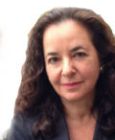Parenting
In Search of a Father: Reflections From a Parenting Expert
Personal Perspective: Are you my father?
Updated June 16, 2024 Reviewed by Jessica Schrader
Key points
- Recent research on child development reports that boys are separated from their feelings at an early age.
- Men who experienced wartime trauma did not speak of it, and often developed what we now call PTSD.
- Carl Jung theorized that the greatest burden we carry is the unlived life of a parent.
I woke up before dawn this Father’s Day with a start: I did not know my father. Of course, I thought I knew my father. Or at least the story I had created about him. He was a kind, anxious man with wonderful interpersonal skills. He loved people, and they loved him back. Photography was his passion—he turned the laundry room into a darkroom—and taking portraits was his love. But by day he supported a family as an accountant. He died suddenly of a massive heart attack, 35 years ago.
Sadly, he never knew my children, but he did hold my young son when he was a baby. I regretted that I was not able to say goodbye. And that I never knew him when I was an adult. Like so many American men, he worked long hours, and often Saturdays, so there weren’t many exciting stories to tell my kids.
But then my mother died a few weeks ago. A child of the Depression, she never threw anything out. Anything. Cleaning out the house in search of her will, looking through file cabinets with endless folders, I was on the verge of tears. I called my brother. “There’s no order here! Nothing is alphabetized!”
“Susan,” he laughed, “It’s under ‘P' for paper!”
The other day, going through more clutter, I came across two leather boxes with gold letters: “Bronze Star Medal,” each box read. Inside the box was a bronze star. What was this? I called my brother again. “Did you know Dad earned two bronze stars?”
“Nope,” he responded, “He never talked about the war."
I called other relatives, now in their 90s, who might have known details. Battle of the Bulge, we figured, but no one knew more.
I’ve spent decades as a trauma therapist, trained and mentored by psychiatrist Judith Herman, author of the gold standard Trauma and Recovery. I knew that men of that generation did not talk about what they saw. It was too horrible to recount. They suffered in silence instead.
Enter another man in search of a father. About two years ago, we received an email from “M,” my husband’s half-brother. He had found us through a DNA test. My husband’s father had been a sperm donor and through the DNA registry, he had been able to locate us. It was only through the test that he realized that the father who raised him who not his biological father. “M” is a remarkable man, a researcher, ER doctor, and trauma surgeon. After 9/11, he wanted to help, and enlisted, being sent to Afghanistan where he was awarded a bronze star for saving lives after a suicide bombing.
We sent him pictures of the medals to try to help us figure this out. “Holy crap,” he said, not one to mince words. “Two? What did he do?”
We don’t know. We are trying to figure this out, to come to understand a father I thought I knew.
My son, now grown, became a historian and knows his way around an archive. I’m hopeful that as we come together, old and new family, we can piece together the life of a man who is a mystery.
As a clinician and a writer on parenting, my thoughts go in a more societal direction. At Harvard, I studied under Dr. Carol Gilligan, author of In A Different Voice, who is known for her groundbreaking work on the development of girls. Her most recent book, In a Human Voice, incorporates the newest research on the development of boys. We are finding that not only are girls silenced—“going underground” in adolescence, as Gilligan puts it—but that boys are silenced at a younger age, separated from their feelings, their pain, and their sadness. I wonder, if my father had been able to speak about his experience, all that he had seen and known, the horror and the joy, if we would have been able to know the fullness of the man, in all his complexity.
References
Gilligan, C. (2023) In a Human Voice. Cambridge: UK.
Herman, J.L. (1992). Trauma and Recovery. NY: Basic Books


